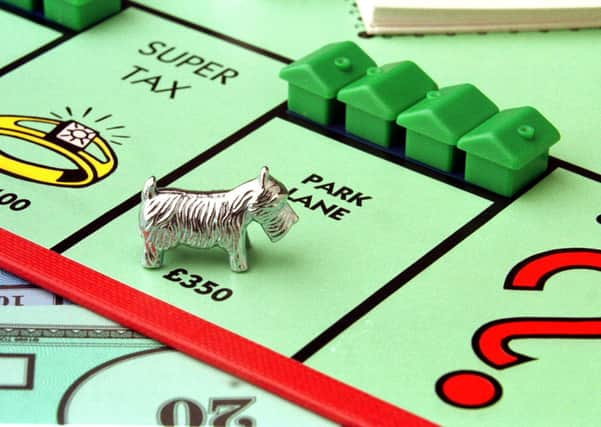A roll of the dice on inheritance tax – Gareth Shaw


QUESTION
You’ve stated in a previous article that an individual can give away up to £500,000 completely free of inheritance tax to direct descendants. What is the situation if a person (with no children) wishes to leave some of that amount to a parent? Would the parent be liable to pay inheritance tax or capital gains tax on the amount they inherited?
Also, going back to the original statement of direct descendants inheriting without paying inheritance tax, what would happen if they passed some of that inheritance on to others who may or may not be related?
ANSWER
Advertisement
Hide AdAdvertisement
Hide AdI’ve received a raft of questions following up on inheritance tax. Clearly, it’s something that many people worry about but it’s worth remembering that for the vast majority of estates, these fears are unfounded.
Fewer than one in 20 deaths resulted in an inheritance tax liability in 2016/17 (the latest data available), although that has been on an upward trajectory since the introduction of the £325,000 inheritance tax-free allowance (or ‘nil-rate band’) back in 2009.
As I mentioned a few weeks back, the residence nil-rate band should lift many more estates out of the inheritance tax ‘trap’, given that property often forms the largest part of an estate. But the rules around this new property-based allowance can be complex, so I am not surprised by the interest the column has generated.
To answer your first question, I went back to the government’s technical guidance on what it describes as a direct descendant. It classifies them as: a child, grandchild or other lineal descendant; a husband, wife or civil partner of a lineal descendant (including their widow, widower or surviving civil partner); a child who is, or was at any time, your step-child; your adopted child; a child fostered by you at any time; or a child to whom you’ve been appointed a guardian.
Any other relatives not mentioned in the above – such as nephews, nieces, aunts and uncles and, indeed, parents – who inherit your home do not trigger the new allowance. I suspect the thinking is that it is rather unusual for money and assets to be inherited up the family tree (ie from children to parents) rather than downwards.
If you were to leave the entirety of your estate to a parent, and this included a property, the first £325,000 of what you passed on could be inherited tax-free, with the remainder taxed at 40 per cent. If your estate was worth £500,000, that would be 40 per cenbt on £175,000, leaving a bill of £70,000.
Capital gains tax would not be applicable on disposal of the property, unless the property was sold for more than its value at the time of probate (the process of gathering up and valuing all of the assets in your estate). Even then, each individual has a £12,300 capital gains tax-free allowance, so the profit would have to exceed this amount – or double, if inherited by both parents – before capital gains tax was payable. This would be charged at 18 per cent or 28 per cent depending if your heirs were basic or higher/additional-rate taxpayers.
On your second question, you need to be careful here. The residence allowance is only applied if the property is inherited by direct descendants – so if you specify in your will, for example, that you want the money released from your property to be inherited by your children but then distributed out to others.
Advertisement
Hide AdAdvertisement
Hide AdThe government states that conditions on inheritance of property like this will prevent the allowance from applying. It does say that the property doesn’t have to end up in the hands of the direct descendants. An estate could still be eligible for the residence nil-rate band if the property is sold as part of the administration of the estate and the sale proceeds are passed to direct descendants.
Once direct descendants have the funds, it is at their discretion how they distribute them. But this will potentially affect their heirs’ liabilities to inheritance tax in the future, not yours.
This is complex stuff, and it may be worth speaking to a professional financial adviser, who helps you plan your finances and minimise future tax bills
Gareth is the Head of Money at which.co.uk.
Comments
Want to join the conversation? Please or to comment on this article.